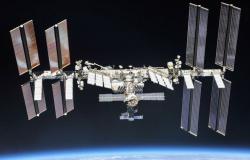The compilation of articles published in the journal Nature Portfolio shows the different effects of health in space.
Astronaut, NASA, space. Photo: Unsplash
An article published in the magazine Nature Portfolio showed through a compilation of scientific investigations how a trip to space changed the bodies of four civilian crew members and what were the consequences on their health of being in Earth orbit.
Firstly, it was analyzed Operation Inspiration4carried out in 2021 by Elon Musk’s space company, SpaceX, which issent four civilian crew members aboard a rocket for a short three-day trip into Earth’s orbit and it was the first privately funded flight to take untrained people off the planet.
Astronaut, NASA, space. Photo: Unsplash
There, scientists from various parts of the world collected data from the members of this crew, because They underwent medical follow-up before, during and after the trip to space and the data collected was carried out after a series of analyzes of their molecules, cells and the physiology of each person.
Besides, The analysis with the crew of this mission is different from that carried out by NASA experts because the SpaceX rocket orbited the Earth at an altitude of 585 km. The altitude is significantly higher than that of the International Space Station (ISS), which subjects the crew to another, probably more intense, radiation environment.
 Astronaut, space. Photo: Unsplash
Astronaut, space. Photo: Unsplash

It may interest you:
The dangers of traveling to Mars: a study warns that the adventure could ruin astronauts’ organs
What were the side effects of traveling to space for civilians?
After analyzing all the studies and experiments carried out on the four volunteers who were sent by Musk to space, five main side effects were found observed after they set foot on land again.
Scientists reported observing changes in the transcriptome (the complete set of expressed RNA molecules), in the epigenome (the set of biochemical signals throughout the genome), in cellular dynamics, in the movement of the microbiome and in mitochondrial responses.
In this sense, they indicated that it was observed in the crew significant loss of muscle mass, biomarkers of old age in their bodies and inflammation in the skin. These effects are closely linked to the physical stress they suffered during the flight.
 Rocket successfully launched in Japan. Photo: Reuters.
Rocket successfully launched in Japan. Photo: Reuters.
Furthermore, a difference was observed in relation to gender, since the two female crew members returned to normal levels faster of their immune system than men. However, scientists warned that astronauts have severe health risks when undergoing a trip to spacehowever short it may be.










